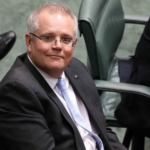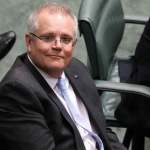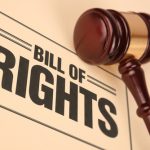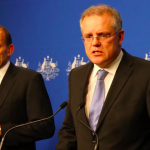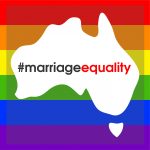Religious Freedom Laws: PM Proposes Schools Can Sack Teachers, but Not Expel Students
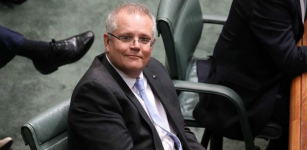
Following the leaking of a section of the Ruddock religious freedoms review last week, Scott Morrison spoke out in support of recommended strengthening and clarification of federal laws that allow religious schools to discriminate against students and teachers on the basis of their sexuality.
Indeed, Morrison appeared in a clip where he smugly reiterated a total of eight times that this was existing law that’s already contained in the Sex Discrimination Act 1984 (Cth). He was therefore implying there was no problem with these discriminatory provisions.
A key member of the Liberal religious right, Morrison further stated in a press release on Saturday that there had been a lot “misrepresentations” made in regard to the religious freedoms review’s recommendations, which were simply seeking to provide greater protections for students.
Then in a political backflip, the PM went on to state that he’ll “be taking action to ensure amendments are introduced as soon as practicable to make it clear that no student of a non-state school should be expelled on the basis of their sexuality.”
However, Morrison hasn’t extended this promise to teachers in regard to employment. But, Liberal deputy leader Josh Frydenberg told ABC radio on Monday that there would be debate over this issue over the coming week, and he didn’t think these discriminatory laws should apply to teachers either.
The discriminatory provisions
At present, section 38 of the Sex Discrimination Act contains provisions that allow religious education institutions to discriminate in connection with employees, contractors and students in regard to their “sex, sexual orientation, gender identity, marital or relationship status or pregnancy.”
The full recommendations of the secretive religious freedoms review were leaked to Fairfax Media last Friday, and they proposed that while amendments be made to existing laws, religious schools should still be able to discriminate on the basis of sexual orientation, gender identity and relationship status.
The review panel states this should be done in relation to employees, contractors and students on the proviso that the discrimination is found in the precepts of the religion, that the school makes its policy in relation to these matters public and a copy of the policy is provided to those affected.
And when it comes to student’s specifically, an extra requirement should be that the child’s “best interests” be of a primary consideration when a religious school is deciding whether to expel them.
When the PM’s been stating that the Ruddock review has sought to strengthen protections against discrimination, he’s simply been referring to these disclosure recommendations.
The Ruddock review recommendations further state that all Australian jurisdictions should abolish anti-discrimination laws that allow religious schools to discriminate on the basis of race, disability, pregnancy or intersex status, which by implication, doesn’t bode well for LGBTQ people.
Religious exemptions at the federal level
A 2008 Senate Inquiry into the Effectiveness of the Sex Discrimination Act raised issues around the religious exemptions contained within the legislation, as they automatically apply without a religious organisation having to justify why the exemptions should be applicable.
Several submissions to the inquiry raised issues over the religious exemptions provided to religious educational institutions in section 38, as these institutions receive public funding and people shouldn’t have to forgo their basic rights when entering into employment with such an institution.
Both the Fair Work Act 2009 (Cth) and the Age Discrimination Act 2004 (Cth) also contain religious exemptions, allowing religious institutions to treat people differently. But, the Racial Discrimination Act 1975 (Cth) and the Disability Discrimination Act 1992 (Cth) contain no religious exemptions.
Discrimination in NSW law
But, these sort of discriminatory provisions don’t only exist at the federal level, in NSW the state’s primary anti-discrimination legislation allows for a number of exemptions.
Section 56 of the Anti-Discrimination Act 1977 (NSW) provides that none of the anti-discrimination provisions within the Act apply to the appointment of members of a religious order, or a body established to propagate a religion.
The anti-discrimination legislation also allows for a broad range of exemptions that apply to private educational institutions in relation to employment and the provision of education, which are not connected to religion.
Section 25(3) of the Act allows for a private household or private educational authority to discriminate in relation to employment on the ground of sex. And section 31A(3) allows a private educational authority to deny a student access on the ground of sex.
Section 38C(3) allows for a private household or private educational authority to discriminate on an employment basis on transgender grounds, while section 38K(3) allows a private educational authority to deny a student access on transgender grounds.
Section 40(3) allows for a private household or private educational authority to discriminate on employment in regard to marital or domestic status, while section 46A(3) allows a private educational authority to deny a student access on marital or domestic status.
Sections 49D(3) and 49ZH(3) allow for a private household or private educational authority to discriminate in relation to employment based on disability grounds and homosexuality respectively, while section 49L(3) and 49ZO(3) allows a private educational authority to deny a student access based on disability grounds and homosexuality respectively.
In relation to age, section 49ZYB(3) allows for a private household to discriminate on employment grounds, while 49ZYL(3) allows a private educational authority to deny a student access on this basis.
And in regard to race, section 8(3) allows for a private household to discriminate on this ground in relation to employment and section 17(3) allows for a “prescribed” educational authority to discriminate against a student on this basis.
The clandestine review
The Ruddock religious freedoms inquiry was commissioned by former PM Malcolm Turnbull in response to his colleagues concerns over marriage equality laws.
Then treasurer Scott Morrison was a key figure in opposing these laws and led the push to have religious protections amendments made to the same-sex marriage bill.
The Ruddock review’s final report was handed over to the government in late May, but it still hasn’t been released to the public. Morrison has said it will be released publicly later this year, at which time, the government’s response will also be tabled.
Treacherous seas
Since taking over the role of prime minister, Morrison has stated that it’s a priority of his to enact laws that protect religious freedoms. And it’s unclear whether last week’s backlash over the review’s recommendations will put a halt to his plans.
It’s also unclear as to whether any of his recent rhetoric regarding amending anti-discrimination laws will have any effect on NSW or other state laws that currently allow for a broad range of discrimination in regard to educational institutions.
But it is clear that the nation now has a deeply religious man at the helm, who believes that Australia is not a secular society and who just a week ago said he supported allowing religious schools to expel LGBTQ students until he felt like his popularity was starting to wane.



